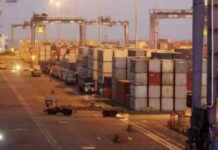The Bombay High Court recently heard a case involving a $1.4 billion tax demand made by Indian authorities against Škoda Auto Volkswagen India. The Indian customs department clarified that it has not halted any import consignments from the German automaker, despite the ongoing legal battle.
Volkswagen has taken legal action against the Indian authorities to challenge the tax demand, which was imposed due to allegations that the company evaded duty payments by importing cars in parts to pay lower tariffs. The court session, presided over by Justices BP Colabawalla and Firdosh Pooniwalla, shed light on the intricacies of the case, with discussions centered on the classification of imported components and the corresponding duty rates.
During the hearing, Justice Colabawalla noted the tax planning strategy employed by Volkswagen, where certain components were excluded from import shipments to qualify for lower duty rates. This practice, though legal, has come under scrutiny by Indian authorities, leading to the significant tax demand. Additional Solicitor General N Venkatraman assured the court that the customs department has not interfered with any consignments from the automaker and has no intentions of doing so in the future.
The crux of the matter revolves around the classification of imported items as parts or completely knocked down (CKD) units. Senior counsel Arvind Datar, representing Škoda Auto Volkswagen, argued that the company had followed this import practice since 2001 without any issue until the sudden tax demand in 2024. Datar emphasized that the company had diligently paid duties on imported parts, not as CKD units, as alleged by the authorities.
Amidst the legal battle, the carmaker expressed concerns over the massive tax demand, labeling it as “impossibly enormous” and contradictory to India’s import tax regulations for automotive components. Volkswagen highlighted the adverse impact of the tax demand on its $1.5 billion investments in India, warning of potential repercussions on the foreign investment climate in the country.
With the court proceedings ongoing, stakeholders eagerly await the final decision expected to be delivered on February 20. The case underscores the complexities of international taxation laws, the implications of strategic tax planning, and the broader ramifications on foreign investments in India’s automotive sector. As the legal tussle unfolds, both parties strive to present compelling arguments to defend their positions and uphold their respective interests in this high-stakes dispute.























